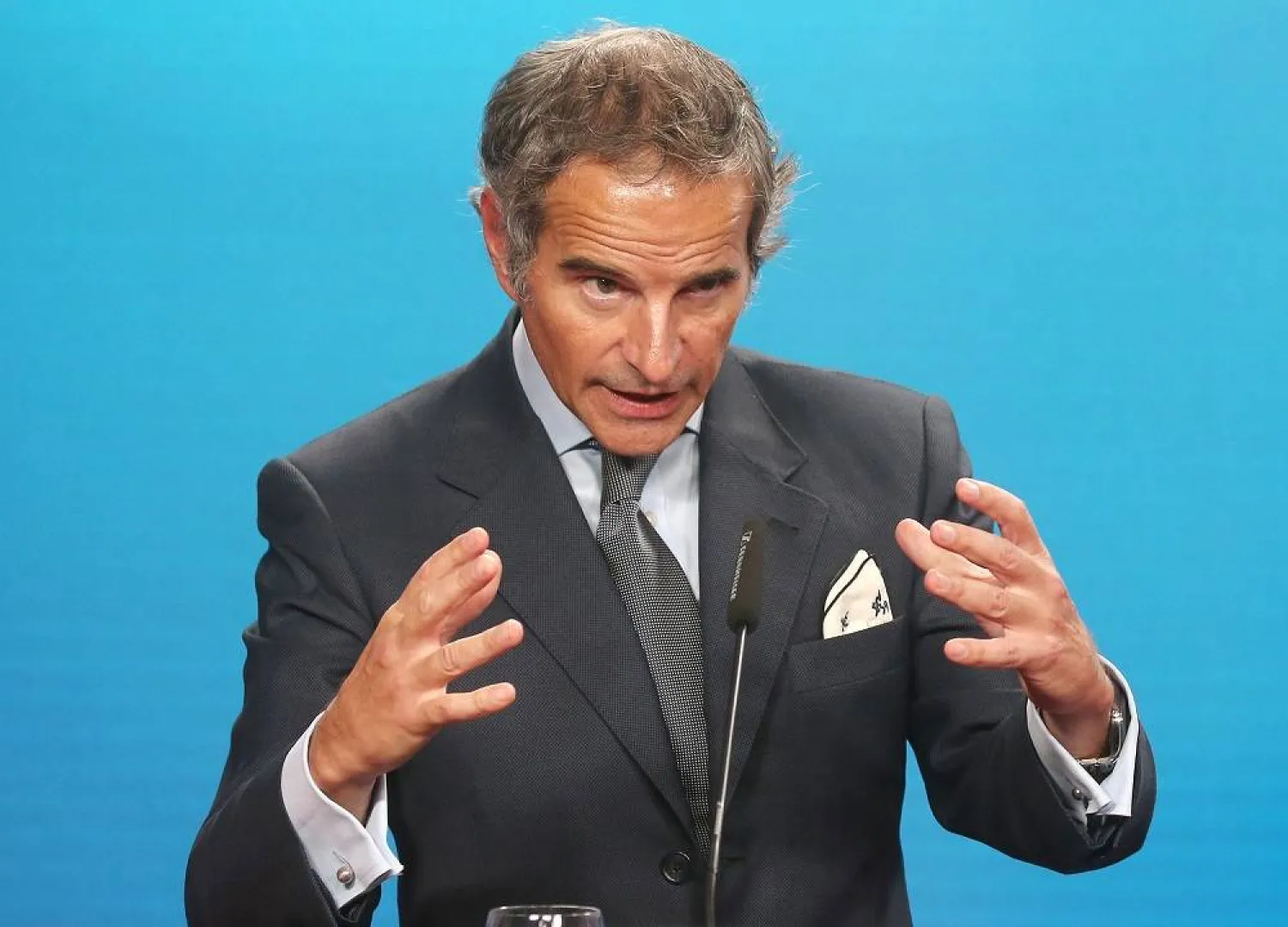A nuclear plant in western Russia, where fighting is raging between Russian and Ukrainian forces, is especially vulnerable to a serious accident because it lacks a protective dome that could shield it from missiles, drones or artillery, the head of the UN nuclear watchdog said on Tuesday.
Rafael Grossi, director general of the International Atomic Energy Agency, spoke after visiting the plant in the Kursk region, where Ukrainian forces pierced the border in a lightning incursion on Aug. 6 and Russia is still battling to eject them.
Grossi told reporters that the RBMK-type facility - the same model as the Chornobyl plant in Ukraine that witnessed the world's worst civilian nuclear disaster in 1986 - lacks the containment dome and protective structure that is typical of modern nuclear power stations.
"This means that the core of the reactor containing nuclear material is protected just by a normal roof. This makes it extremely exposed and fragile, for example, to an artillery impact or a drone or a missile," he said.
"So this is why we believe that a nuclear power plant of this type, so close to a point of contact or a military front, is an extremely serious fact that we take very seriously."
Grossi said it would be an exaggeration to equate Kursk with Chornobyl, where an accident caused a deadly explosion that spewed a radioactive cloud over parts of eastern Europe.
"But this is the same type of reactor and there is no specific protection. And this is very, very important. If there is an impact on the core, the material is there and the consequences could be extremely serious."
Whereas a typical containment dome could resist an impact as powerful as that of a falling aircraft, Grossi said, the Kursk design was "completely different".
"This is like the building across the street, all right? With all this nuclear material. So this is why I'm drawing this comparison, because I think it's relevant."
DRONE IMPACT
Ukraine has yet to respond to an accusation last week by Russian President Vladimir Putin that it tried to attack the Kursk plant.
"I was informed about the impact of drones. I was shown some of the remnants of those and signs of the impact they had," Grossi said, without saying who was responsible.
He said the purpose of his visit was to draw the world's attention to the situation and to say that "basically never, ever, must or should a nuclear power plant be attacked in any way."
For much of the Russia-Ukraine war, Grossi's focus has been on the safety of Ukraine's Zaporizhzhia nuclear plant, where Russian forces took control in the first weeks of the fighting. Since then, each side has accused the other of shelling it.
Attention shifted to Kursk, a major Soviet-era station, after Ukraine launched its incursion three weeks ago. Fighting has taken place within about 40 km (25 miles) of the facility.
Of the plant's four reactors, two older ones have been shut down and one was disconnected from the grid on Sunday for maintenance, leaving one still operational. Two more are under construction.
"When a plant is operating, the temperature is much higher, and if there was the case of an impact or something that could affect it, there would be serious consequences," said Grossi, who throughout the war has warned both Russia and Ukraine to refrain from actions that could trigger a nuclear accident.
In the town of Kurchatov, where the plant is located, residents interviewed by Reuters said they were confident in Russia's defenses.
"There are concerns, of course. It is happening here, at our borders. We have faith in our soldiers. We know we will win, no matter what," said Maxim, 25, who declined to give his last name.
Liliya, out walking with her children, said they were sometimes frightened.
"Sometimes it can be quite loud, the kids were worried at first, but I explained to my older daughter that we are being protected, the air defense system is activated, it means everyone is informed, we are under protection," she said.
"We clearly have good defenders, thank God they are coping."









